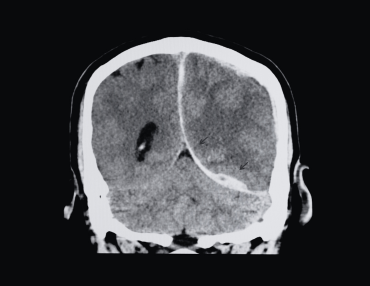Traumatic Brain Injury (TBI) is a serious condition that can have long-lasting effects on individuals and their families. At Watchmaker Injury Law, we recognize the profound impact that TBIs can have on every aspect of life, and we are dedicated to providing comprehensive support to those affected. This blog aims to provide an in-depth understanding of the causes and symptoms of TBI, helping you recognize and address this critical health issue.
What is Traumatic Brain Injury?
Traumatic Brain Injury (TBI) occurs when an external force causes damage to the brain. This can result from a blow, jolt, or penetrating injury to the head. TBIs can range from mild (concussion) to severe, with symptoms that may appear immediately or develop over time. The severity of a TBI often determines the extent of its impact on physical, cognitive, and emotional functioning.
Common Causes of Traumatic Brain Injury
- Falls: Falls are the leading cause of TBIs, particularly among young children and older adults. This can occur from slipping, tripping, or falling from heights.
- Motor Vehicle Accidents: Car, motorcycle, and bicycle accidents are significant causes of TBIs. The sudden impact and force can lead to serious brain injuries.
- Sports Injuries: Contact sports such as football, soccer, and hockey, as well as activities like skateboarding and cycling, can result in TBIs, especially if protective gear is not used.
- Assaults and Violence: Physical assaults, domestic violence, and gunshot wounds can cause traumatic brain injuries.
- Explosive Blasts and Combat Injuries: Military personnel are at high risk for TBIs due to exposure to explosive blasts and other combat-related injuries.
- Struck by or Against Objects: Being hit by an object or colliding with an obstacle can lead to brain injuries.
Symptoms of Traumatic Brain Injury
The symptoms of TBI can vary widely depending on the severity of the injury. They are generally classified into physical, cognitive, emotional, and behavioral symptoms.
Physical Symptoms
- Headache: Persistent or worsening headaches are a common symptom of TBI.
- Nausea and Vomiting: Feeling nauseous or vomiting can indicate a more serious brain injury.
- Fatigue and Drowsiness: A person with a TBI may feel unusually tired or sleepy.
- Dizziness and Balance Issues: Difficulty maintaining balance or feeling dizzy can be a sign of TBI.
- Sensitivity to Light and Noise: Increased sensitivity to light and sound is common, especially in concussions.
- Blurred Vision and Ringing in the Ears: Vision problems and tinnitus (ringing in the ears) are also associated with TBIs.
- Loss of Consciousness: In more severe cases, a TBI can cause a brief or prolonged loss of consciousness.
- Seizures: Some individuals may experience seizures after a TBI.
Cognitive Symptoms
- Memory Problems: Difficulty remembering new information or recalling past events can occur.
- Confusion and Disorientation: Feeling confused or disoriented, particularly about time and place, is common.
- Difficulty Concentrating: Trouble focusing or paying attention can result from a TBI.
- Slow Thinking: Processing information more slowly than usual can indicate cognitive impairment.
Emotional Symptoms
- Mood Swings: Rapid changes in mood, from happiness to sadness or anger, can be a symptom of TBI.
- Depression and Anxiety: Feelings of sadness, hopelessness, or excessive worry are common emotional responses.
- Irritability: Increased irritability and frustration can be a sign of TBI.
- Emotional Numbness: A lack of emotional response or feeling emotionally detached can occur.
Behavioral Symptoms
- Changes in Sleep Patterns: Sleeping more or less than usual, or having difficulty falling asleep, can indicate a TBI.
- Impulsive Behavior: Acting without thinking or making rash decisions is a common behavioral change.
- Aggressiveness: Increased aggression or agitation can result from a TBI.
- Social Withdrawal: Avoiding social interactions and activities previously enjoyed is a behavioral sign of TBI.
Diagnosing Traumatic Brain Injury
Diagnosing TBI involves a combination of medical history, physical examination, and imaging tests. Key steps in the diagnostic process include:
- Medical History and Examination: A healthcare provider will review the patient’s medical history and conduct a physical examination to assess neurological function.
- Imaging Tests: Imaging tests such as CT scans and MRI scans provide detailed images of the brain to identify any structural damage or bleeding.
- Neuropsychological Testing: These tests evaluate cognitive functions such as memory, attention, and problem-solving skills.
- Glasgow Coma Scale (GCS): The GCS is a clinical tool used to assess the level of consciousness and severity of the TBI based on verbal, motor, and eye-opening responses.
Treatment and Management of Traumatic Brain Injury
The treatment and management of TBI depend on the severity of the injury and the specific symptoms experienced by the individual. Key components of treatment and management include:
- Emergency Care: In cases of severe TBI, immediate emergency care is crucial to stabilize the patient and prevent further brain damage.
- Medications: Medications may be prescribed to manage symptoms such as pain, seizures, and anxiety.
- Surgery: Surgical intervention may be necessary to relieve pressure on the brain, repair skull fractures, or remove hematomas.
- Rehabilitation: Rehabilitation is a critical component of recovery from TBI. This may include physical therapy, occupational therapy, speech therapy, and cognitive rehabilitation to restore function and improve quality of life.
- Psychological Support: Counseling and support groups can help individuals and their families cope with the emotional and behavioral effects of TBI.
- Assistive Devices: Depending on the severity of the injury, assistive devices such as wheelchairs, communication aids, and home modifications may be necessary.
Long-Term Effects of Traumatic Brain Injury
The long-term effects of TBI can be profound and vary widely depending on the severity of the injury and the individual’s response to treatment. Long-term effects may include:
- Physical Disabilities: Persistent physical impairments such as paralysis, weakness, and coordination problems can result from TBI.
- Cognitive Impairments: Long-term cognitive issues such as memory loss, difficulty concentrating, and impaired executive functions are common.
- Emotional and Behavioral Changes: Persistent mood swings, depression, anxiety, and changes in behavior can have a lasting impact on daily life and relationships.
- Chronic Pain: Ongoing pain, including headaches and musculoskeletal pain, can occur.
- Loss of Independence: Severe TBIs may lead to a loss of independence, requiring long-term care and support.
- Reduced Quality of Life: The combined effects of physical, cognitive, and emotional impairments can significantly reduce overall quality of life.
Preventing Traumatic Brain Injury
While not all TBIs can be prevented, taking certain precautions can reduce the risk of injury. Key prevention strategies include:
- Wear Protective Gear: Always wear helmets and other protective gear when participating in sports, riding bikes or motorcycles, and engaging in high-risk activities.
- Use Seat Belts: Always wear a seat belt when driving or riding in a vehicle to reduce the risk of injury in the event of an accident.
- Prevent Falls: Implement safety measures in the home to prevent falls, such as installing handrails, using non-slip mats, and keeping walkways clear of obstacles.
- Promote Safe Practices: Encourage safe practices in the workplace and during recreational activities to minimize the risk of head injuries.
- Educate and Train: Educate children, athletes, and employees about the risks of TBI and the importance of safety measures.
Legal Rights and Compensation for Traumatic Brain Injury
If you or a loved one has suffered a TBI due to someone else’s negligence or misconduct, you may be entitled to compensation. Understanding your legal rights and the process of filing a claim is crucial for obtaining the support and justice you deserve. Key steps in pursuing a legal claim for TBI include:
- Consulting with a Personal Injury Lawyer: Seeking legal advice from an experienced personal injury lawyer is the first step in understanding your rights and options. A lawyer can help evaluate the merits of your case and guide you through the legal process.
- Gathering Evidence: Collecting evidence to support your claim is essential. This includes medical records, witness statements, and documentation of any related expenses or lost wages.
- Filing a Claim: Your lawyer will assist in filing a personal injury claim against the responsible party. This involves drafting legal documents, negotiating with insurance companies, and representing you in court if necessary.
- Pursuing Compensation: Compensation for TBIs may cover medical expenses, lost wages, pain and suffering, and other related costs. Your lawyer will work to ensure you receive fair and just compensation for your injuries.
Conclusion
Traumatic Brain Injury (TBI) is a serious condition that can significantly impact an individual’s physical, cognitive, and emotional well-being. Understanding the causes and symptoms of TBI is crucial for early recognition and intervention, which can improve outcomes and quality of life. At Watchmaker Personal Injury Law, we are committed to helping those affected by TBI navigate the complexities of their condition and secure the compensation they deserve. If you or a loved one has suffered a TBI due to negligence, reach out to our experienced legal team for a free consultation and personalized support. Your path to recovery and justice begins here.



